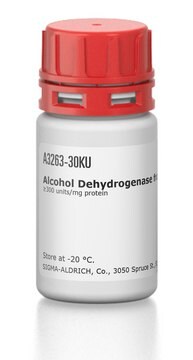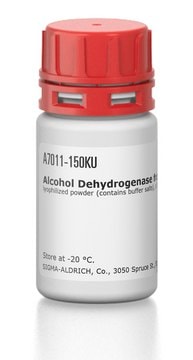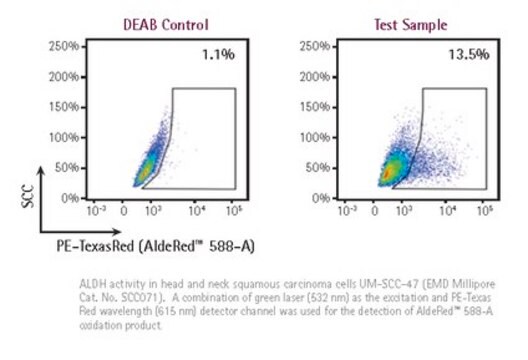MAK053
Alcohol Dehydrogenase Activity Assay Kit
sufficient for 100 colorimetric tests
About This Item
Produtos recomendados
uso
sufficient for 100 colorimetric tests
método de detecção
colorimetric
doença(s) relevante(s)
gastrointestinal diseases
temperatura de armazenamento
−20°C
Informações sobre genes
human ... ADH1A(124) , ADH1B(125) , ADH1C(126) , ADH4(127) , ADH5(128) , ADH6(130) , ADH7(131)
mouse ... ADH1C(11522) , ADH4(26876) , ADH5(11532) , ADH6A(69117) , ADH7(11529)
rat ... ADH1C(24172) , ADH4(29646) , ADH5(100145871) , ADH6(310903) , ADH6A(295498) , ADH7(171178)
Categorias relacionadas
Descrição geral
Aplicação
Adequação
Princípio
substituído por
Palavra indicadora
Danger
Frases de perigo
Declarações de precaução
Classificações de perigo
Aquatic Chronic 3 - Eye Irrit. 2 - Flam. Liq. 2
Código de classe de armazenamento
3 - Flammable liquids
Classe de risco de água (WGK)
WGK 3
Ponto de fulgor (°F)
53.6 °F - closed cup
Ponto de fulgor (°C)
12.0 °C - closed cup
Certificados de análise (COA)
Busque Certificados de análise (COA) digitando o Número do Lote do produto. Os números de lote e remessa podem ser encontrados no rótulo de um produto após a palavra “Lot” ou “Batch”.
Já possui este produto?
Encontre a documentação dos produtos que você adquiriu recentemente na biblioteca de documentos.
Nossa equipe de cientistas tem experiência em todas as áreas de pesquisa, incluindo Life Sciences, ciência de materiais, síntese química, cromatografia, química analítica e muitas outras.
Entre em contato com a assistência técnica





